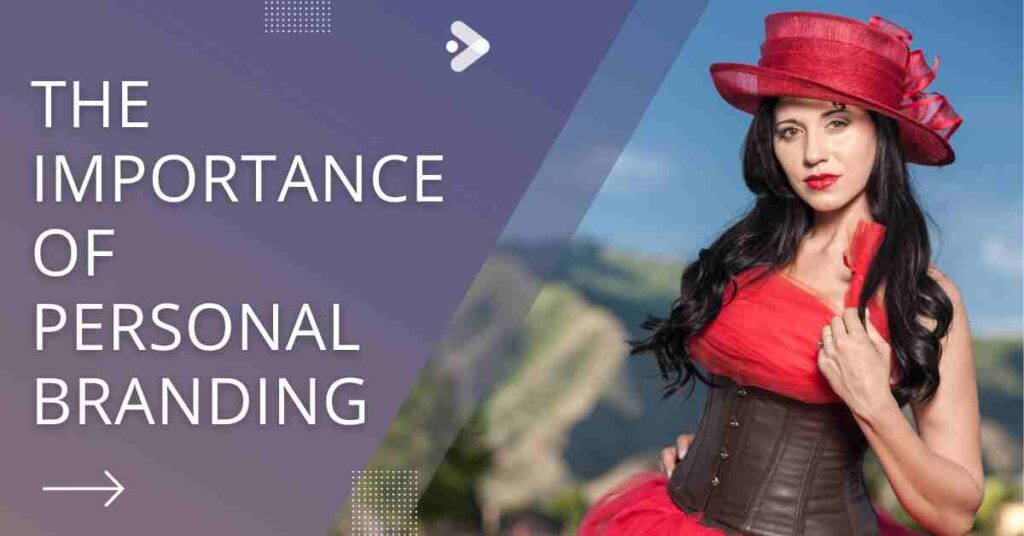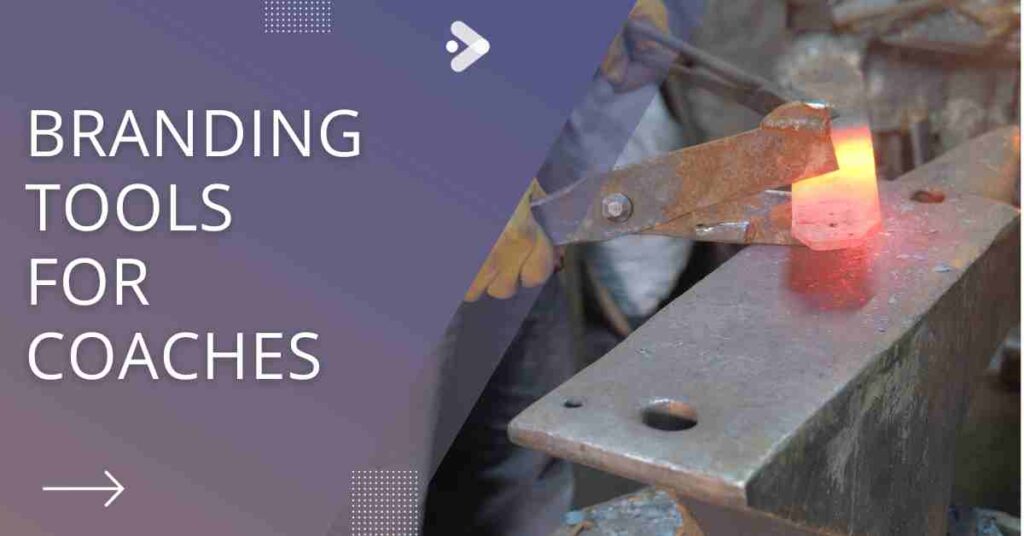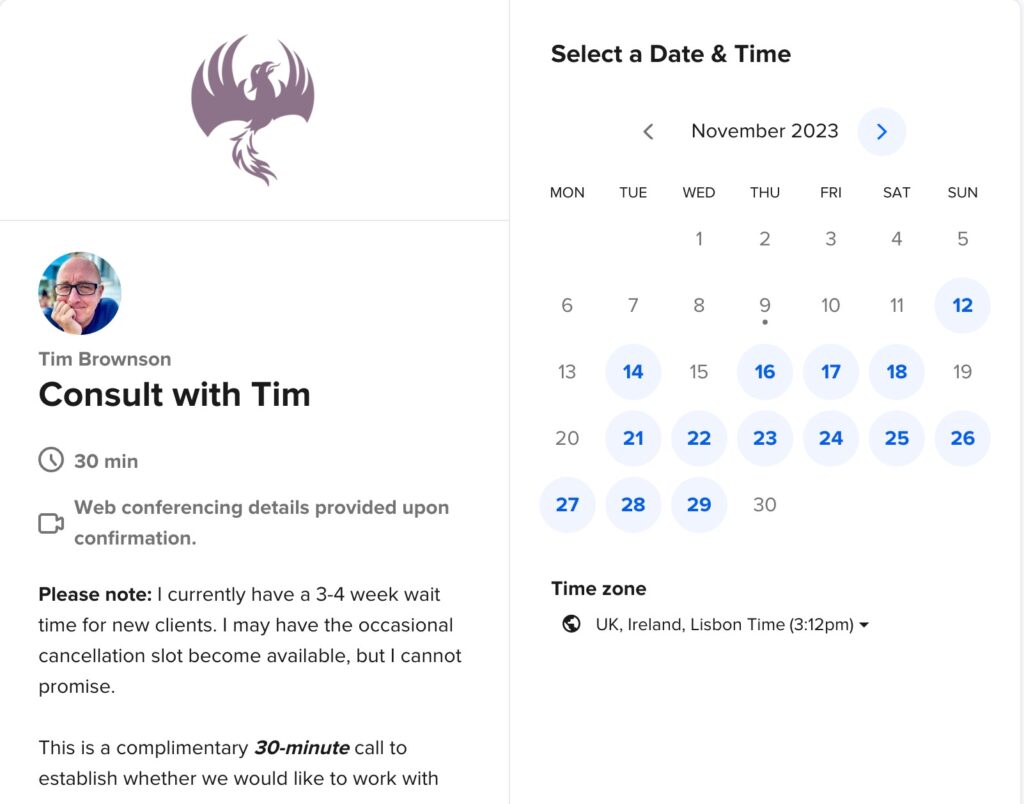The rapid rise of AI has meant branding for coaches is becoming increasingly important.
As a coach trying to get coaching clients in an increasingly crowded market, developing a strong personal brand is crucial for standing out and conveying credibility.
Succeeding as a coach used to be a simple matter of producing lots of great coaching content and waiting for people to contact you.
I succeeding using that method for well over a decade.
However, tools like ChatGPT, Claude And Bard have made producing good content easy and quick for any astute coach.
So, a different approach is called for that involves strategic branding for life coaches.
In this comprehensive guide, I will explore the foundations for building a compelling and authentic coaching brand that attracts your ideal clients whilst allowing you to remain true to yourself.

What is a coaching brand?
Before diving into branding strategies, it’s essential to define the difference between your brand and your branding.
If you prefer, you can watch this very short video.
You don’t directly control your brand; no business can.
Your brand consists of what others think and say about your business (good and bad) when you’re not in the room.
As such, you have a brand whether you like it or not because people can always talk about you.
You may have a vanilla bland brand nobody cares about, or you may not even know what your brand is, but you still have one.
Your coaching brand is your reputation and the perceptions that come to the mind of people when they see, hear or think about you and/or your business name.
It’s shaped by your customers’ experiences and those of others you interact with when your coaching practice is at the forefront (and sometimes, even when it’s not).
As such, consults/discovery calls, testimonials, talks and interviews you give, networking events you etc attend shape your brand.
Similarly, the impressions people form about you when they see you on social media, receive your newsletter and even reading blog posts like this one shape your brand.
In short, almost every interaction you have with other people can impact your brand.
By contrast, the process of branding describes your efforts to purposefully influence your brand.
I deliberately use humour, a bit of snark, tend to swear and keep things brutally honest because it’s part of who I am and, thus, is part of my branding.
Your branding establishes expectations about your business.
Effective branding attracts your ideal clients by communicating who you serve and the value you provide better than competitors.
For example, when you hear the brand Amazon, descriptors like fast shipping, low prices, and convenience probably come to mind.
When you hear Apple, you may think of design, innovation, and being cool.
And when you think of the Trump brand, you’ll probably think of either dishonesty, greed and fucking outright lunacy or (if you’re detached from reality) somebody telling it like it is and sticking it to the man.
Your impressions weren’t built entirely through people or companies telling you implicitly what to think, although that may have an impact.
Rather, you constructed these brand associations through consistent exposure to strategic branding and experiences both to you or ones you hear about.
As a coach, you want your ideal clients to see you as the expert who can help them solve their problems when your name comes up.
But simply stating that won’t make it their experience.
You need to back it up through purposeful, congruent and repetitive (in a good way) branding.

The importance of personal branding for coaches
Let’s clear up one point that sometimes confuses people.
Your logo is not your brand.
Your logo is merely a part of your branding, a visual representation and/or reminder of your brand.
Your actual brand (remember, it’s what people say about you) encompasses your identity, messaging, personality, and the promises you make to clients.
An effective brand clearly communicates:
- Who you help and specialize in working with (your coaching niche)
- The problems you can solve for those people
- Why your clients should trust you to solve those problems
Getting crystal clear on these core components gives potential clients a sense of familiarity with you quickly and easily.
It also helps establish you as an expert and authority in your niche.
Those two things lead to trust, which completes the EAT acronym (expertise, authority and trust) to help you get clients.
Think of hugely popular brands like Nike, Coca-Cola, Nike or Apple.
Strong branding has made them instantly recognizable and helped them become industry giants.
The same branding principles apply to you if you are to succeed as a coach, only on a much smaller scale.
Four benefits of having a strong personal brand
Having a well-defined personal brand offers you many advantages when trying to become fully booked, including:
1. Higher perceived value leading to increased prices
A strong brand allows you to offer premium and specialized services tailored to your ideal clients’ needs.
And because that positions you as an expert/specialist, it allows you to charge higher fees. Woo-hoo baby!
2. Higher conversion rates
If your coach branding is on point (clear, targeted, and consistent), your ideal clients will immediately get who you help and why you’re the best solution for them.
I rarely have consults with tyre kickers. People who approach me already know my style and how I can help them from the way I present my coaching with my branding.
3. Referrals and word-of-mouth
A memorable personal brand gives your happy clients something specific to tell their friends about you, fueling referrals.
My clients have no problem describing why I’m different to other coaches who help coaches.
He’s very experienced and has been a coach for almost 20 years, he does tend to say fuck a lot, but he’s quite funny and will help you get results.
Now, of course, that won’t appeal to everybody, because I don’t appeal to everybody. Thank God.
4. Focused and authentic marketing
Having a brand that aligns with your values and personality will allow you to get crystal clear on your marketing and stay focused.
If you know what message you’re trying to deliver, then thinking of content is exponentially easier.

6 Stages To Building Your Coaching Brand
Now you know what a brand is and why you need one, let’s look at how you build your coaching brand with a 6 stage process.
1. Define Your Target Client Avatar
Getting crystal clear on who you help is crucial. Define an ideal client avatar, including demographic details like:
- Gender, age, location, income, job status
- Books and TV programmes they read/watch
- People they admire/follow
You will also need psychographic information such as:
- What values do they hold dear?
- What keeps them awake at night?
- What are their hopes and dreams?
Note: If you want the exact process I use to help my clients work out their client avatars, you can get my FREE Client Avatar Workbook by signing up for my equally free, Pro List newsletter.
2. Determine your niche
Using your client avatar as a guide, define a focused niche around helping specific people with their specific problems.
A niche like ‘ I help women going through a divorce‘ is much more effective than simply saying, ”I’m a life coach‘. Presuming you’re talking to a woman going through a divorce, that is!
Alternatively, you can check out my free (everything is fucking free around here, it’s ridiculous!) post, How to Choose a Brilliant Niche in 2024.
3. Clarify your brand promise (important shit)
This may well be the most critical piece of your coach branding – the implicit or explicit promise you make about the value clients can expect to receive.
For example:
- “I promise to help you overcome imposter syndrome so you can succeed in leadership roles.”
- “I promise you will get a pay rise and/or get the new job role you want.”
- I promise to help you. get more paying clients
To be effective, your promise should be:
- Relevant – Solves a specific problem for your target clients
- Credible – Can you deliver on your brand promise (presuming your client does the work)? Testimonials, public speaking, published books, and interviews can all help demonstrate credibility.
- Differentiated – What sets you apart from other coaches rather than has you blending in? With myself, it’s my decades of experience, sense of humour and honesty about the coaching industry.
- Emotional – Does it appeal to potential clients’ hopes, frustrations, or aspirations (think psychographics in the client avatar.
Important: Your promise doesn’t have to be literal. It’s a branding promise, not a promise to Santa or your mum.
I cannot literally promise I can help you get more clients because you may do fuck all with the information I share and the help I offer.
However, I know that close to 40 years of sales, coaching and marketing experience is enough to help you get clients if you do the work.
4. Get clear on your personal brand
Your brand personality brings your promise to life. Are you:
- Warm and nurturing?
- Tough love motivator who swears a lot and likes to laugh (guess who?)
- Quirky and unconventional?
- Deliberate and to the point?
- Crazy and airheaded
Stay true to who you naturally are and the core values you adhere to.
While you can polish your image, inauthentic branding has you sounding like a bad door-to-door salesperson.
5. Create consistent messaging
- Voice – How you communicate verbally and in writing (I think you know by now what my voice is like, but what about yours?)
- Tagline – A short, memorable phrase like the one I use in the Fully Booked Coach Facebook Group ‘For coaches who want more clients and less bullshit’.
- Visual identity – Logo, font, colours, images (this is often referred to as your branding kit or a brand style guide)
6. Deliver a valuable and reliable client experience
Map out key experiences clients have with you and your content.
For each, consider how it delivers on the promise your life coach brand makes:
- Discovery call – I prefer to do consults, but if you offer discovery calls, make sure you deliver a lot of value that aligns with how you coach.
- Social media interactions – Be consistent in your messaging and with showing up. You are better off posting twice a day every day than four times one day, then twice the next, and then not at all on the following three days. And go out of your way to help and support others; don’t just make it about you.
- Email sequences – I add a huge amount of value to my email newsletter. I give away everything I know at some stage or another. Don’t hold back information and as with social media – be consistent.
- Blog content – same as email sequences
- Coaching packages – Of course, at this stage, you have already closed the deal, but always, always, always do your very best.
Following this branding process sets you up to attract your ideal clients through authenticity and consistency.
But brand-building doesn’t end here.
Revisit these steps regularly to refine your brand as your niche or business evolves.
Next, let’s look at some powerful tools to elevate your branding.

Branding Tools for Coaches
1. Canva
There are tools like Zoom for meetings that I renew each year without even pausing to consider the cost.
Canva fits into that bracket.
All the visuals in this post were made in seconds using Canva.
The same can be said for when I use visuals in the Fully Booked Coach Facebook Group.
I have a brand kit set up that includes the colours, fonts and logos I use and then everything else is a matter of drag and drop.
I do occasionally use outside designers, but only use designers who can use Canva and then share with me to I can edit/change if and when appropriate.
2. Social Media
All social media platforms allow you to change your bios/headers etc.
Don ‘t waste that opportunity if you’re using it as a vehicle for attracting clients.
My dogs are part of my brand image so they get. a pass, but for the most part your kids and family should not be part of your header or in your avatar.
S.T.A.Y. O.N. M.E.S.S.A.G.E.

3. Calendly
Calendly is as important to me as Canva but for different reasons.
When people go to my scheduling tool it means they are serious about wanting to talk with me.
And for the most part, that measn serious about hiring me.
How crap would it look to have it branded with the Calendly link and no logo because I was too cheap to use a paid option?
Your scheduling tool is often the last link between a new client and you, make sure it’s consistant with your brand and message.

4. Authenticated Social Media Accounts
X (Twitter), Facebook, Instagram and Threads (via Instagram) all allow you to pay for authentication now and snag yourself a nice blue tick.
All can have real value if you use those platforms regularly in cementing/authenticating your brand.
With X, it can help massively with organic reach. This means if you pay Elon, more people get to see what you have to say.
I have well over 4,000 followers on X yet less than 1% of people will see anything I ever Tweet (or X, for that matter).
If X were important to me for business, I would definitely pay to have a verified account.
I don’t even use my personal Facebook profile for business, all that page does is route people to the Fully Booked Coach Facebook Group, but I still pay for verification.
And I do so because I want people to know when I post elsewhere, I am who I say I am.
i also think that even though anybody can buy a blue tick, many people don’t know that, so there may be an added social proof benefit.
I haven’t need the human support that al;so comes with it, so it’s tough to know if that is worth the cost on its own.
I know it’s annoying paying for things like this, but we’re running a business and if $10 per month is beyond your means, then so is any possibility of becoming a fully booked coach.
6. Even more random ways of staying on message/brand
- Branded intake/onboarding forms
- Branded invoices.
- Asking AI to check a new post/email against an older on message one to see what it thinks
- The use of the same colours and fonts across all platforms/ways of communicating.
- Consistency of images and image styles online and in media
- Hashtags on social platforms that support them
- Email signature incorporating your logo/colours/fonts etc
- Backgrounds, either virtual or real when online, like Zoom calls

The Importance of Branding for Coaches – Conclusion
Way too many coaches see branding as something only big corporations or celebrities engage in.
That is a massive mistake with business-wrecking potential.
I succeeded in my early days at A Daring Adventure not because I had a niche – I didn’t – but because I have a very strong brand.
I stood out from the self development crowd because I was different.
There were a lot more self development bloggers back then, but I was unusual with my willingness to share when I’d had a bad day, use humour and tendency to swear.
There was no grand plan underpinning this; it was just me being me and then a bit more so.
In other words, I highlighted the elements that made me stand out rather than pushing them into the background.
And you must do the same.
There are unique elements to your personality that people will love – if they know about them.
The coaching industry is chock full of vanilla coaches who post regularly to social media, produce content and smile a lot, but very few stand out.
You must stand out if you are to have any chance of becoming a fully booked coach.

